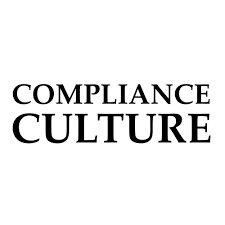Ask Your Board and Your C-Suite – “How Do You Know We Have an Ethical Culture?”

If you speak to members of a corporate board and the C-Suite and you ask them if the company has a strong ethical culture, we all know what they will say – “Of course, we do. We have a strong commitment to our Code of Conduct and Doing the Right Thing . . . . [blah blah blah].” You can listen, nod your head and move on without registering any concern.
Such a conversation goes on regularly among corporate leaders, especially when speaking with chief legal officers and chief compliance officers. But is it true?
Corporate board and C-Suite executives need to explain how they know that the company’s culture is “positive” and “strong.” Or, in other words, what is their proof?
I am not saying that board members and C-Suite executives are deliberately lying; in fact, their statements reflect what I call – “corporate happy talk,” positive statements shared among colleagues to reassure each other and avoid any realistic discussion of the real world.

Board members and C-Suite executives do not want to focus on critical thinking nor difficult issues unless the issue falls in their comfort zone – revenues, finances and business strategy. Statements of positive reassurance without meaningful date or back-up often are indicators of lack of information or understanding.
To address this knowledge gap, companies have to embrace a meaningful strategy to measure and assess the company’s culture. HR departments often conduct an annual or bi-annual employee survey. Compliance officers often collaborate in this survey and include specific questions to uncover culture-related issues. While this efforts is positive, companies have to increase their commitment to assessing their culture.
Chief compliance officers are the natural stewards of a company’s culture. Everyone plays an important role in a company’s culture. But CCOs have to grab the issue, monitor the company’s culture and conduct regular assessments. To educate the board and senior management, a CCO has to report quarterly on culture-relevant issues, supported by data and analysis.
I have written and spoken on numerous occasions about a new culture mindset and strategy. CCOs can conduct limited culture surveys to target audiences. There is no reason to limit surveys to just an annual or bi-annual company-wide survey. To the contrary, targeted surveys can be used to generate data on a regular basis.
To accomplish this task, CCOs can conduct brief surveys from specific geographic offices, from product lines or other company sectors. Such data can be maintained and compared to a comparable office or subsequent surveys of the same office or division.

Surveys is only one tool — there are other ways to gain insight from employees. Focus groups, while not statistically measurable, provide valuable insights and observations. CCOs should conduct regular focus groups as a way to stay in touch with employee trends and morale. Focus groups should be targeted to countries and operations where potential morale and culture issues may exist. Such a process can create valuable insights and importance trends.
Another possible tool is employee exit interviews. In many companies, HR will send a survey electronically to former employees and seek insights into company issues. The survey questions should include specific questions targeted to the company’s culture and employee morale.
A culture assessment is a critical task for CCOs. It is important that a company know its culture, cite evidence to support their general claims that a company’s culture is strong, and monitor its culture so that it can intervene if necessary to protect and advance the company’s culture.















